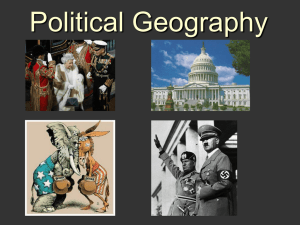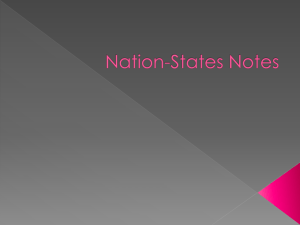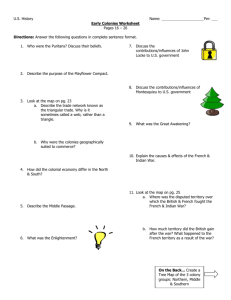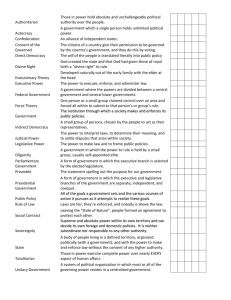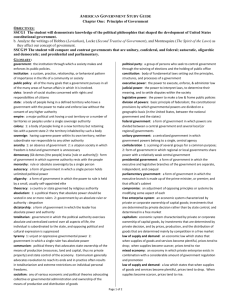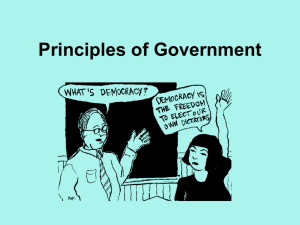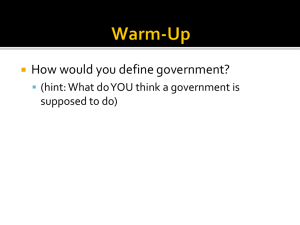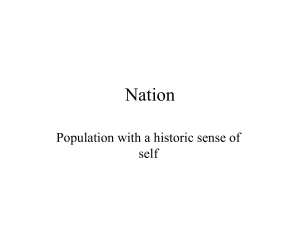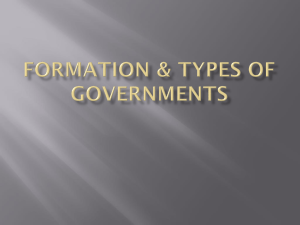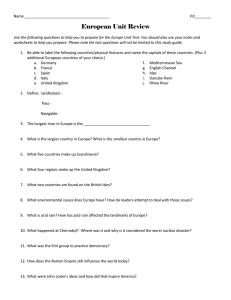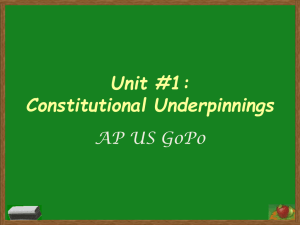1-1 presentation
advertisement
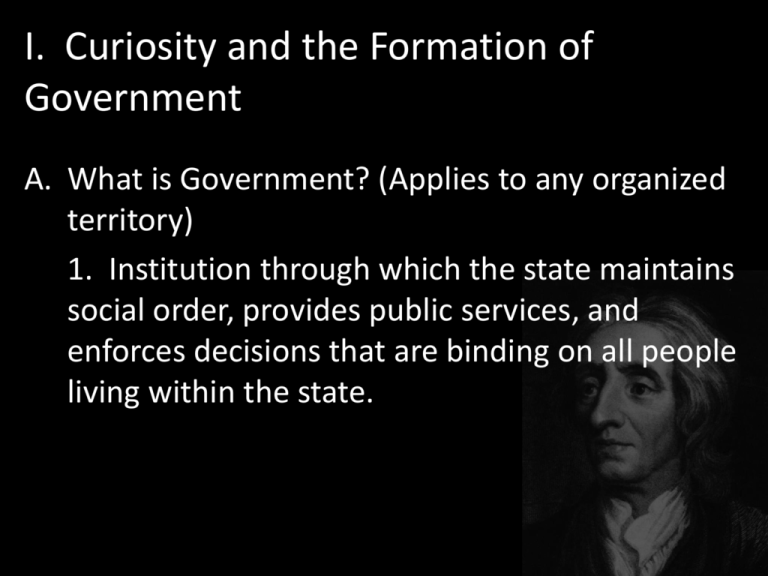
I. Curiosity and the Formation of Government A. What is Government? (Applies to any organized territory) 1. Institution through which the state maintains social order, provides public services, and enforces decisions that are binding on all people living within the state. B. What is the purpose of Government? (Leave space to define each with examples) 1. Maintain Social Order 2. Provide Public Services 3. Provide National Security and Common Defense 4. Provide for and Control Economic Systems II. Philosophers of Government (And the ideas that influenced American Founders and the creation of a democracy) A. Rome and Greece (509 BC-27 BC) 1. Roman Republic a. Classical Republicanism—The best kind of society is one that promotes the common good instead of the interest of only one class of citizen b. Civic virtue, moral education, small uniform communities 2. Greek Scholar a. Aristotle—1st Student of Government b. Contributions created the following ideas: i. STATE— 1.) Political Community that occupies a definite territory 2.) Organized government with the power to make and enforce laws without approval from a higher authority 3.) 4 Elements of a STATE (define and give examples of each) a.) Population b.) Territory c.) Sovereignty d.) Government ii. NATION— 1.) Sizable group of people who are united by common bonds of culture iii. NATION-STATE The First J. LO—John Locke NOT… His Best Friend—Thomas Hobbes B. John Locke (1632-1704), English 1. Natural Rights philosopher in 1700s 2. Imagined life with no government 3. RESULT—Natural Rights (Unalienable) a. Life—survival and free of threats to one’s security b. Liberty—free to live as one pleases and free from domination by others c. Property—freedom to work to gain economic goods for survival 4. Social Contract Theory a. People surrender to the state the power to maintain order b. In return, the state agrees to protect its citizens 5. Not a fan of the 3 other Theories (Define and give examples of each) a. Evolutionary (family) b. Force c. Divine Right C. Baron de Montesquieu (1689-1755), France 1. Advocate of a system that divided and balanced power among classes 2. Focused on Roman Republic’s 3 basic elements of government that created a representative democracy: Monarchy, aristocracy, and democracy
